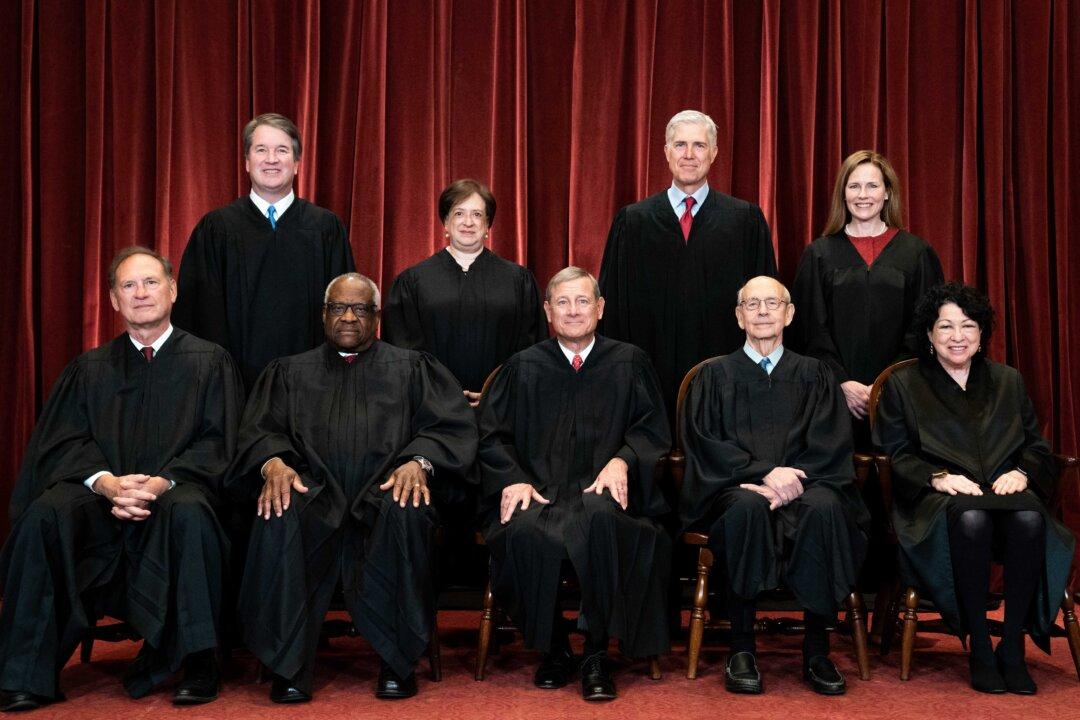The Supreme Court on Oct. 18 ruled in favor of police in two cases in which plaintiffs had argued that officers used excessive force, overturning lower court rulings that allowed law enforcement to be sued over civil rights complaints.
In two unsigned (pdf) opinions (pdf), the Supreme Court said that police can be shielded from liability—often known as “qualified immunity”—unless it’s “clear to a reasonable officer” that their actions were illegal. Specifically, the court ruled in two cases in Oklahoma and California that officers are entitled to qualified immunity, which is a legal doctrine that shields police against civil lawsuits while they’re doing their jobs.





